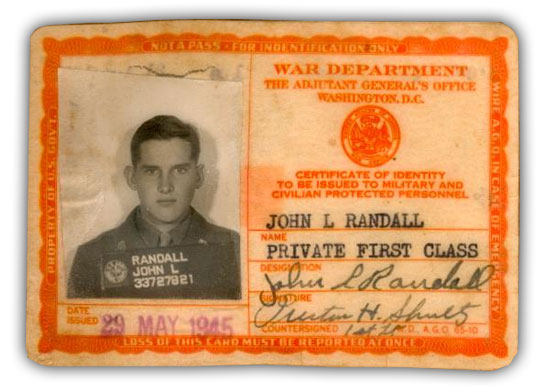A “grammar Nazi” is someone who habitually corrects someone’s spelling or grammar to the exclusion of any other consideration. You know the type: “I suppose that declaration is OK, Tom, except it should be “unalienable rights” instead of “inalienable rights.”
The original grammar Nazis were real-life, actual Nazis, and their excessive attention to spelling led to a gruesome end. Here’s the story.
It was December 1944. The Nazis had the men and resources for one last counter-offensive in the west. In the Battle of the Bulge, they broke through allied lines, and aimed for the port of Antwerp. They hoped to force the allies to a negotiated peace. The Nazis had a trick up their sleeves. Otto Skorzeny, who also led the raid which successfully rescued Mussolini from captivity, was tasked with leading a unit composed of English-speaking Nazi soldiers in American uniforms. His “Operation Greif” aimed to sow confusion by changing signs, spreading rumors, and committing sabotage behind American lines. They succeeded. General Eisenhower spent his Christmas enveloped in heavy security on the false rumor that his assassination was one of the unit’s aims. Roadblocks set up to screen for the infiltrators slowed traffic and caused havoc. Nazi forgers prepared documents and papers to allow the infiltrators to pass as American soldiers. And the infiltrators spoke English, but in many cases were unfamiliar with American culture and idiom. Clever MPs asked who was Mickey Mouse’s girlfriend, or who plays center field for the Yankees. They asked obscure cultural questions to distinguish infiltrators from real American soldiers. General Omar Bradley answered an MP’s question, telling him that the capital of Illinois was Springfield, only to find himself arrested by the MP who was convinced that the correct answer was Chicago. Another general was arrested for placing the Chicago Cubs in the American League.
But one of the more dramatic encounters happened when a battalion staff officer examined an “American” officer’s identity card. Here’s a sample of a World-War-II-vintage identification card:

Examine this carefully. Take your time. The German forgers did. See that top line? “NOT A PASS – FOR INDENTIFICATION ONLY.” INdentification. Not Identification. So what did the Nazi forgers do? Why they corrected the obvious misspelling in the sample identification cards they had. No Nazi infiltrator would be caught dead with a misspelled INdentification card.
Right. About that…
Of course savvy American officers and MPs knew all about that typo, having examined many genuine American INdentification cards throughout their careers. Stephen Ambrose tells the tale:
Another German in an American officer’s uniform drove a jeep to a roadblock, where he was interrogated by a battalion staff officer. The German’s speech and identification papers were flawless – too flawless, as it turned out. The authentic Adjutant General’s Office Identification Card, carried by all GIs, had printed at the top: “Not a Pass – For Indentification Only.” With Teutonic exactness, the German forger had corrected the spelling, so that the forged card read “Identification.” That missing “n” cost the German officer his life. Stephen E. Ambrose, Citizen Soldiers, p. 219.
And that is how the copy editing exactitude of the original grammar Nazis led to their comrade’s summary execution.
So remember the moral of the story: sometimes the wages of typographical pedantry is death.
Updated: see “Another Classic Blunder.”
Updated Again: Thanks, Peter Grant, for the link. If you’ve enjoyed my writing, please take a look at my science fiction novel, The Hidden Truth, free through Kindle Unlimited.



One thought on “The Gruesome Fate of the Original Grammar Nazis”